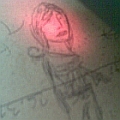Oberst_Klink
Posts: 4778
Joined: 2/10/2008
From: Germany
Status: offline

|
quote:
ORIGINAL: jwolf
This is not directly related to the game but I thought I would get good info from the crowd here. My wife and I just returned from a short vacation (1 week) in Poland. We visited Warsaw and Krakow and some nearby places. In Warsaw we were told, as I had known generally, that Warsaw was nearly totally destroyed in the war (variously, we were told figures of 90-95% destruction). Particularly after the uprising in late 1944, when Hitler ordered the demolition of the entire city. In contrast, Krakow suffered only rather minor damage -- at least, minor in comparison to the fate of Warsaw.
Now the question is, why not? I would have thought that even a modest amount of aerial bombing or artillery shelling would result in serious damage to the city of Krakow. Was there just no fighting there? 
BTW the most fascinating thing I learned is that Poland has a desert (!!) and in fact that is where Rommel's Afrika Korps trained!
As per the almighty Wiki and my humble knowledge of the Armija Krajova -
'The Home Army considered an armed insurrection in the city of Kraków, but this plan was abandoned...'
'Reasons for the uprising's cancellation
According to professor Andrzej Chwalba from Kraków’s Jagiellonian University, AK planners wanted to start the uprising most probably on October 10, 1944 (earlier dates had also been considered). This never happened, due to several reasons:
The Home Army District of Kraków was very numerous, with soldiers wanting to start an insurrection, but lacking weapons. It has been estimated that only some 10 to 15 percent of Kraków’s AK units were armed.
Kraków was the capital of the General Government, and the Wehrmacht garrison was 30,000 strong, or twice as numerous as in three-times bigger Warsaw. Also, some 10,000 German officials, all of them armed, were stationed in Kraków.
In the summer of 1944, the Red Army stopped its offensive, after reaching the Vistula river line. This gave the edge to the Germans in Kraków, who started to muster their troops.
On August 6, 1944, the Gestapo, fearing of another uprising, ordered a round-up of all able-bodied young men in Kraków.
Roman Catholic Archbishop Adam Stefan Sapieha, the most respected Polish official who stayed in Kraków, strongly opposed the idea of the uprising. It is known that Sapieha asked General Josef Harpe of the German Army to proclaim Kraków an “open city”, which would help save both the population and historic buildings. On August 7, 1944 Harpe answered stating that Kraków would be defended, but promised that the Wehrmacht would try to spare the civilians. However, the General warned that in case of an uprising, the whole city would be destroyed.'
http://en.wikipedia.org/wiki/Krak%C3%B3w_Uprising_%281944%29
_____________________________
|
 Printable Version
Printable Version










 New Messages
New Messages No New Messages
No New Messages Hot Topic w/ New Messages
Hot Topic w/ New Messages Hot Topic w/o New Messages
Hot Topic w/o New Messages Locked w/ New Messages
Locked w/ New Messages Locked w/o New Messages
Locked w/o New Messages Post New Thread
Post New Thread